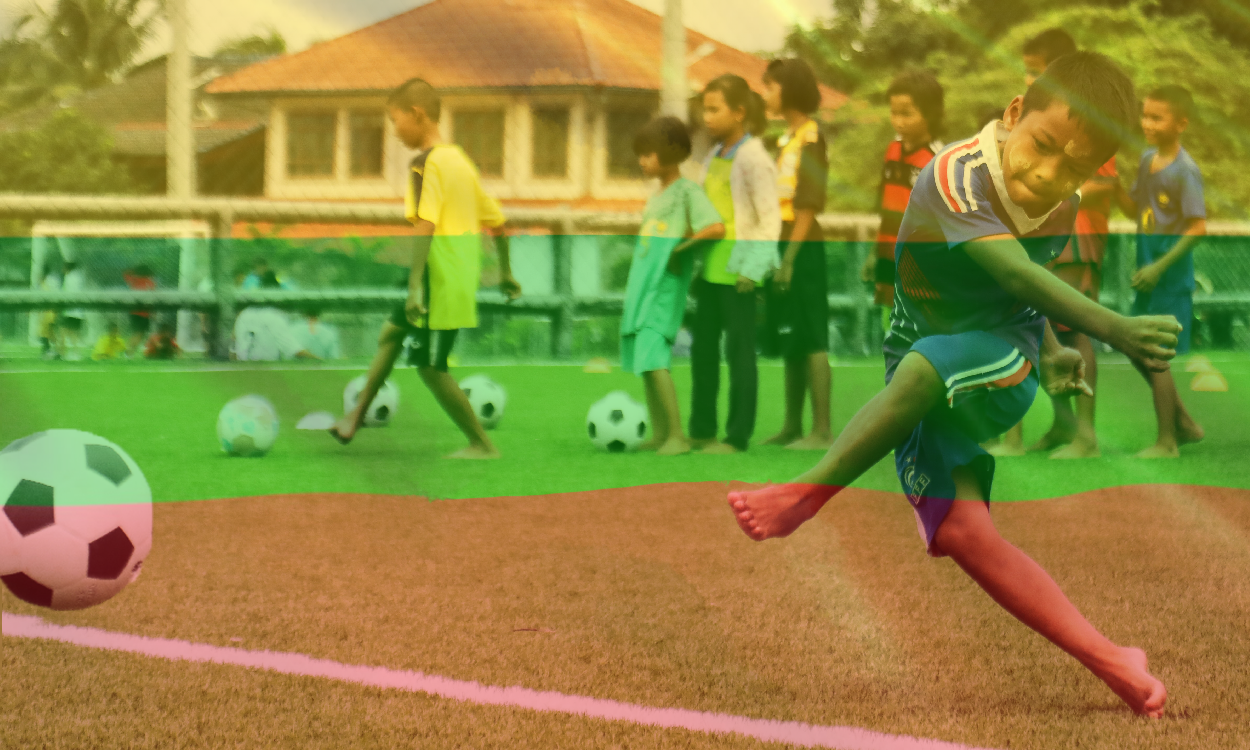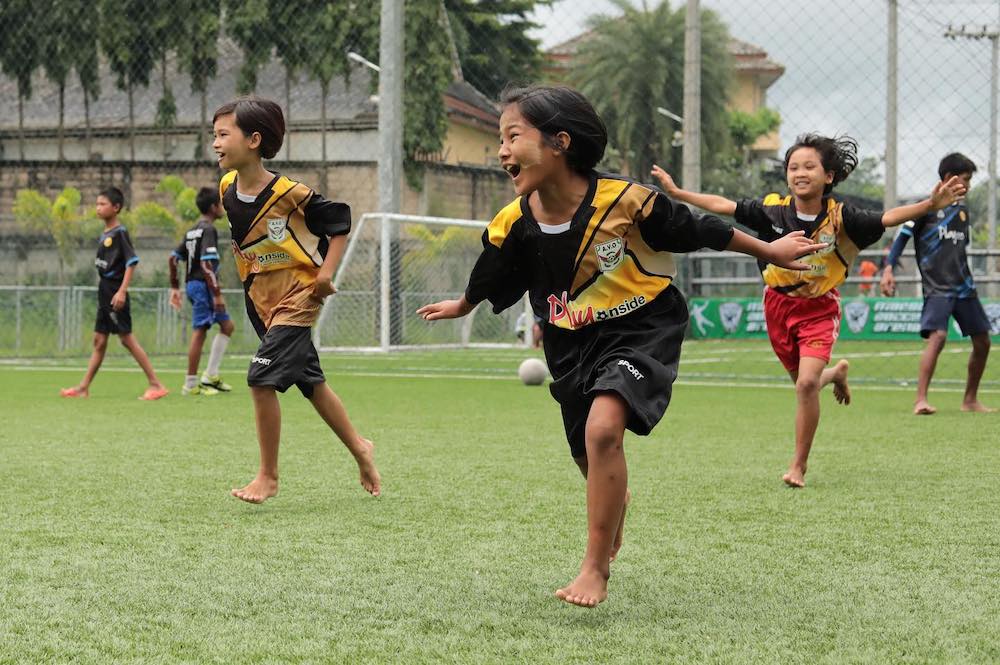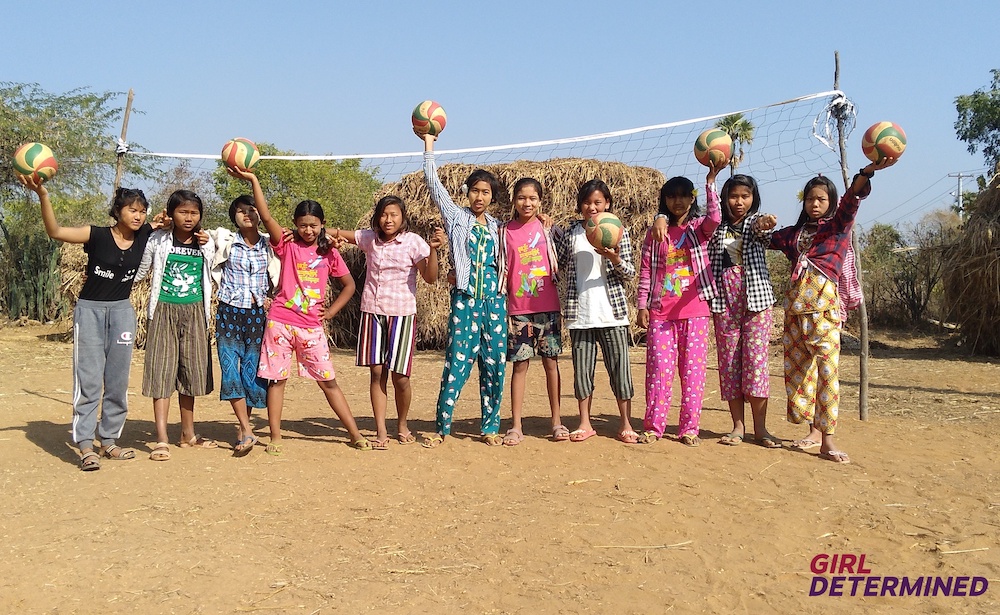
Sport Addressing Humanitarian Crises – The Conflict in Myanmar
May 6, 2022
At Beyond Sport, we firmly believe that when used with intention, sport provides strong solutions to the complex social issues that divide us - across communities, countries and conflicts. In this context, it is a powerful tool to advance human rights in the direst of circumstances. In our latest series, we're highlighting just a few of the sport for development organizations in our network who are providing vital support, safe relocations, equipment and resources to those directly affected by crises around the world. Today, we’re featuring PlayOnside and Girl Determined who have been providing support to Burmese youth...We’ve also included links provided by the organizations with ways you can help. #SameTeam
THE CRISIS IN MYANMAR
Myanmar, (previously known as Burma) is among the countries most at risk of a worsening humanitarian crisis this year. According to the UN, the people of Myanmar are facing an unprecedented political, socioeconomic, human rights and humanitarian crisis with needs escalating dramatically since the February 2021 military takeover and a severe COVID-19 third wave in 2021. The people of Myanmar have endured devastating natural disasters, decades of military rule and ethnic conflict.
Ethnicity and conflict are inseparable within the country. The Rohingya people are a mostly Muslim ethnic minority group in Myanmar that represent about 1 million people. Despite this, they are considered not citizens of Myanmar but ‘resident foreigners’ and have had to face a history of injustice and violence. Following a military crackdown that began in 2017, hundreds of Rohingya have fled the country and more than 6,000 were killed in the first month of the onslaught. In March this year, the US declared Myanmar’s mass killings of the Rohingya Muslim population to be genocide. The state's inability to address ethnic minority grievances or provide adequate security to communities has created a dispute among minority groups.
The military coup in 2021 resulted in a violent deadlock between the military government and multiple opposition forces that have fostered campaigns of assassinations, bombings, protests and more. The Civil Disobedience Movement that followed has negatively impacted the emerging economy and the already fragile public service sector, further restricting people’s access to essential services and children’s access to education This has tragically caused around 800,000 people to be internally displaced and nearly one million Myanmar refugees are living in overcrowded camps in Bangladesh with no end in sight.
The economic and political turmoil is estimated to have pushed nearly half the population into poverty, and 14 out of it 15 states are suffering acute malnutrition.

Located in Mae Sot on the Thai-Burma border, PlayOnside uses soccer as a tool to educate and empower displaced Myanmar migrants and refugees regardless of ethnicity, gender, religion, or socioeconomic status. We spoke to co-founder, Javier Almagro about the organization’s work to create safe non-violent spaces, and psychosocial support to help build resilience through football and sport-based activities.
PlayOnside has a particular focus on gender equality, empowerment and inclusion. The ongoing crisis in Myanmar and the COVID-19 pandemic have increased the vulnerability of young women and girls to social and domestic problems said Javier. Gender discrimination, inequality, and gender-based violence are major issues occurring in the migrant communities on the Thai-Burma border and in the country. Physical and sexual intimate partner violence, non-partner sexual violence, sexual assault, rape and sexual violence against adolescent girls are common.
To mitigate the social issues in the migrant communities, PlayOnside started a “Female Training” project in 2018, which later progressed into the Women Lead Project this year. The project provides dedicated weekly training for women and girls interested in learning soccer and sharing experiences with others in Mae Sot.
“The program provides opportunities for migrant women and girls to learn the values of teamwork, self-reliance and resilience. It also had a multiplier effect on their health, education, and leadership development and built social connections and challenged harmful gender norms,” said Javier.
“Hundreds of vulnerable migrant women and girls are empowered by the Women lead project, and many of them gave their time and efforts in addressing the social issues that they have been suffering.”
He believes that the practice of sports during humanitarian crises provides many psychosocial benefits, which lead to greater community cohesion and social connection. “It assists new community groups to integrate better, reducing discrimination and stigma and giving them a sense of belonging.”
Alongside PlayOnside’s programs is its Border Emergency Fund (BEF). This collaborative project with three local organizations was born from the pandemic to assist the migrant communities that were in lockdown without any support from the government. The support was based on the immediate needs for food and hygiene products. Since the military coup, the BEF has been providing support to the population displaced on the border, fleeing from the ongoing conflict across the country.
“It is very important that conflicts like this do not fade away. We see constantly how conflicts around the world are forgotten and their population is left behind. It is really important to give a voice to the conflict in Myanmar, reaching out to their political representatives and bringing the conflict of Myanmar back into their political agendas,” Javier emphasized.
“I think that many times it is important to step back and reflect on the world we live in. How can I make it better? Is it my responsibility? We all have an impact on every action and decision we make every day. The way we communicate with the people around us, the values we promote, and the environment we want to live in. If we are all able to commit to treating every person with respect, tolerance and sympathy we could create a better world for everyone. It is difficult, but not impossible!”
CLICK HERE TO SUPPORT PLAYONSIDE

2017 Beyond Sport Global Award winner, Girl Determined, has been providing direct sport leadership programming to adolescent girls in Myanmar since 2010. They work to equip girls with the skills, confidence and support system needed to navigate their changing landscape by increasing their access to new potential social, political and economic benefits.
We spoke to Program Quality and Communications Officer, Aleta Phelps, who shared that the complex situation in Myanmar means that locally rooted organizations are best positioned to directly help affected communities and to guide international aid agencies to get appropriate, usable and needed goods and services. The various ethnic and religious groups with their own traditions also require local on-the-ground operations to have both the reach and sensitivity required to respond.
“People of Myanmar are getting tired, but they are unwavering. By working to build resilience through ongoing programming and network-building, we can help mitigate impacts of future shocks and longer-term damage.”
Many of the organization's participants are now facing financial instability, displacement and loss of opportunities. Girl Determined visited communities to talk to the girls, their parents and religious leaders to find out their immediate needs. Ultimately, they found that the girls need to be able to see a pathway out of the current situation. Luckily, the conflict did not stop their programs and nearly 2,000 adolescent girls are currently benefitting from regular programming in six different regions and states.
However, adjustments were made to better meet the needs of adolescent girls and young women and adapt to fluid circumstances. Some of these include designing and carrying out shorter programs so girls in unstable situations can still participate, and promoting ways for girls to monitor and manage their own mental health and personal wellness.
Aleta believes that the use of sport is one of the best ways to reach girls to provide something beneficial. “In this period of time steeped in fear and uncertainty, girls have lost most of their safety networks without school classes, living in unfamiliar areas, and even being told not to go outside and meet with others for fear of contracting or spreading the Coronavirus,” she said.
Girl Determined’s flagship initiative, Colorful Girls Volleyball Circles, is a structured two-year program in which over 2,000 girls from across targeted communities come together two times per week. Program sessions employ the Colorful Girls Circles life and leadership curriculum which uses creative, experiential activities and discussion to build self-image, knowledge, and awareness. Volleyball Circles offers opportunities for girls to meet and build critical peer relationships, express their concerns, manage their physical and emotional health, and feel a sense of safety and stability. Recently, an entire community where the organization operates was forced to flee because of violence. The village of girls and their families were forced to camp in the forest but took refuge in playing volleyball for a chance to relieve some anxiety.
“We need to be sure that programs for youth continue even in areas where there is no armed conflict. These are sites that could, with the shape of this current situation, become armed conflict zones in coming months. Young people participating in sports are learning resilience—perhaps differently than others—and the girl who "grabbed the volleyballs" demonstrated not only that individual girl's self-awareness but also her concern for others and the importance of sports and play in her life,” said Aleta.
“Social connections formed through sport can reduce trauma effects and promote joy - even in bleak moments. In some places, families and individuals who have fled, are now staying in camps and settlements with people they had never met before - maybe from different ethnic and religious backgrounds. In these communities, we have seen girls pick up the ball and gather others to playmaking new bonds and build trust.”